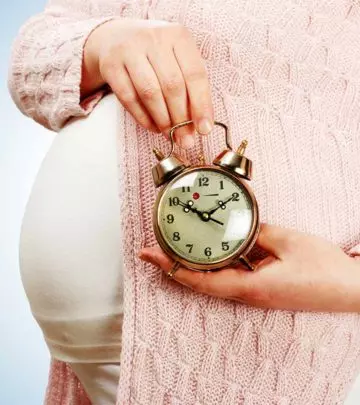
Image: iStock
If only I knew! This exasperated monologue is rather commonplace, and it remains one of humanity’s greatest regrets. Then some learned people tell us fools that ‘knowing makes all the difference’. Luckily in some cases, it does! Like when you’re an expecting mom who wants to know when her baby will finally be there in her arms.
The due date, or what we like to call, that magical day, is the subject of great debate. When you know the date, you can plan everything around it. We would like to point out that pregnancy can ruin the best-of-laid plans. But don’t discourage yourself.
While we are on the subject of planning, what if you already knew your due date, and could plan all the things like your babymoon, your maternity leave, and when you need to plant that stash of chocolates in your purse, beforehand? Sounds brilliant right… Well, it truly is. So, here’s how you can calculate your due date, and some other information you should know.
1. How do you calculate your due date?
Many people have many methods of calculating a lady’s due date, but this is what the experts say: “Subtract three months from the first day of your last menstrual period (LMP), then add seven days — that’s your due date the following year. For example, say your last period began on April 11. Count backward three months, which gets you to January, and then add seven days. Your pregnancy due date would be January 18.”
2. Are these ‘predicted’ due dates accurate?
Well, there aren’t many ways of understanding whether the due date that you have calculated is correct or not. Every pregnancy is unique, and what may work for Mrs. Singh might not work for you.
3. Why does the calculator fail?
Well, the system sometimes fails to accurately predict a woman’s due date. This is probably because it doesn’t work that well for women who experience irregular periods. The irregularity of the period may affect the way you calculate your LMP, and the system consequently predicts an incorrect due date.
4. Other ways of calculating due date
Doctors can calculate a woman’s due date through any of the following measures:
Uterus size: The uterus’ size plays a crucial part while calculating your due date.
Ultrasound: Ultrasounds not only help understand how your little one is coming along, but they also help doctors predict your due date.
Developmental Phases: Doctors use many tools and ways to predict your due date. One of these is keeping a track of pregnancy milestones.
Fundal height: The procedure involves checking the distance between the fundus and the navel at week 20.
5. Can your due date change?
Sometimes, a woman’s due date may change. It isn’t something to be worried about as your doctor may change your predicted due date based on the factors we talked about above.












